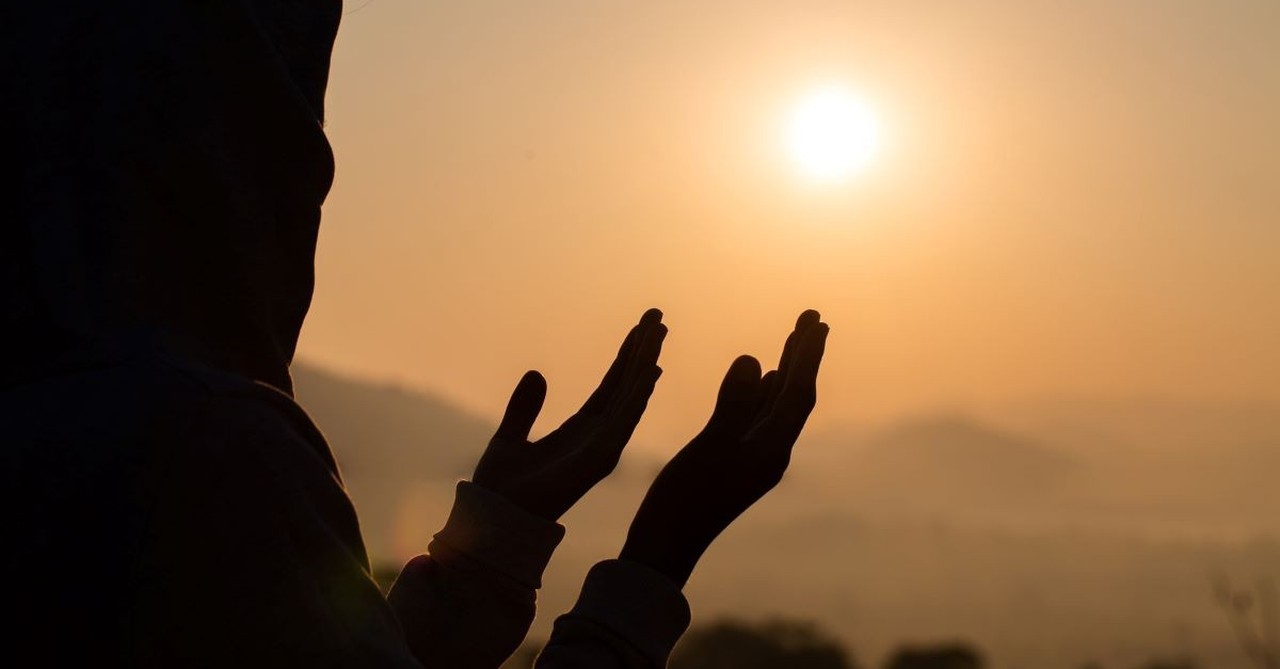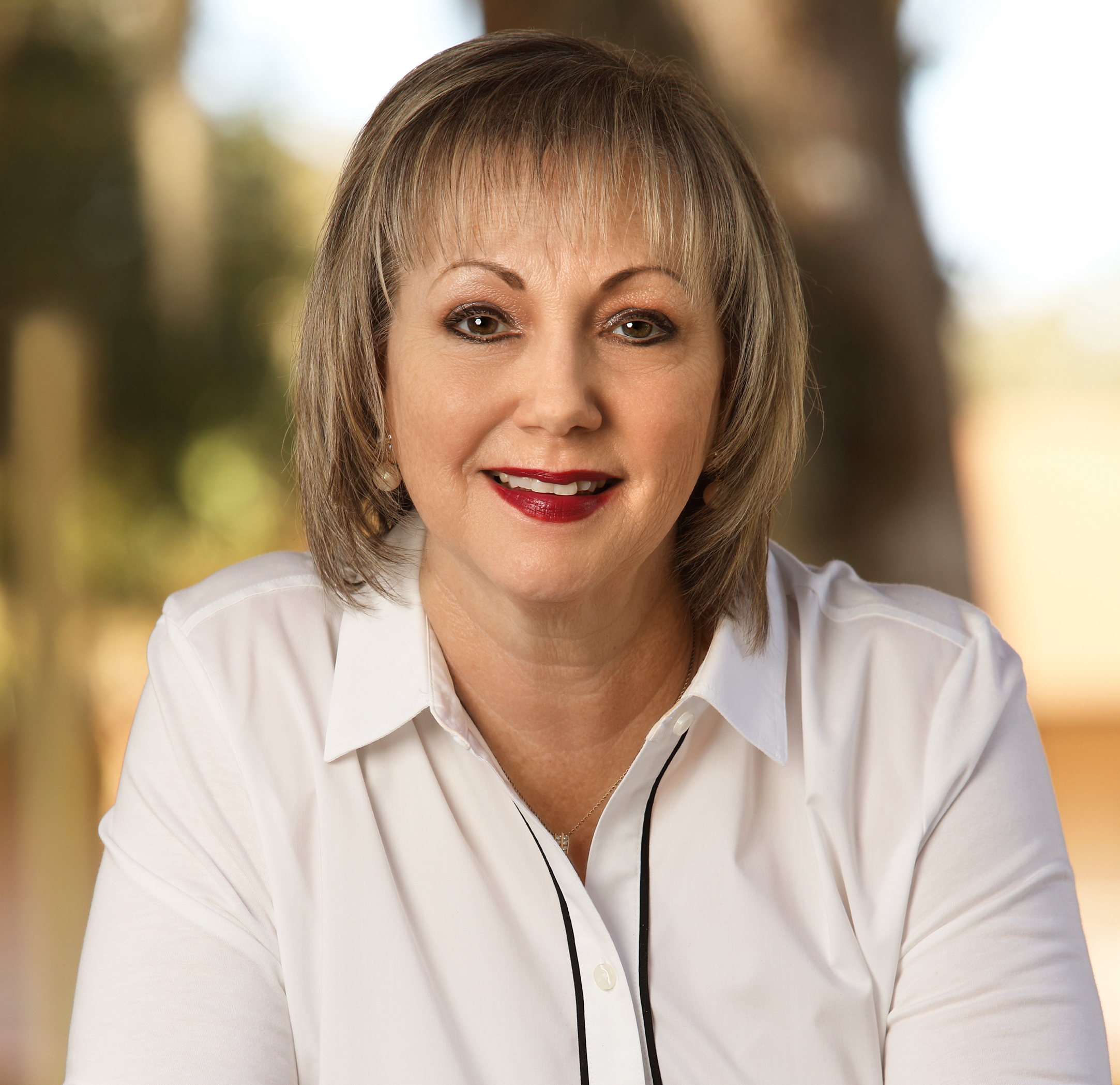5 Prayers and Praises of Faithful Women in the Bible

Prayer. As if enough hasn’t been said about it, there is still much to learn. So many tiny treasures to discover—this time from a handful of praying women whose stories can be found in the Bible, stories as relevant today as they were thousands of years ago.
Photo Credit: ©GettyImages/stock_colors
1. Hannah, Who Prayed for That One Thing

1. Hannah, Who Prayed for That One Thing
SLIDE 1 OF 5
Have you ever prayed for something for so long that, after a while, you wondered if there was any point in bothering God with your request? Or have you ever wanted something so badly that all life outside of receiving the request seemed pointless?
Such was the life and prayer of Hannah, wife of Elkanah, who lived in Israel during the latter days of the Judges, approximately 1100 years before the birth of Christ. In those days, if a woman was barren—childless—she was considered to be under a curse. She was a failure because, by their standards, a girl was born to grow up, marry, have babies, and mind her family. Without giving birth, a married woman might face the disgrace of divorce and destitution. But, by their code, to keep a married woman from being divorced or destitute if she were barren, she could allow her husband to marry a servant girl or handmaiden (remember Sarai, Abram, and Hagar’s story in Genesis 16). This may have been the case of Hannah and Elkanah. Elkanah loved Hannah (1 Samuel 1:5), but he had another wife, Peninnah, who had produced children for him.
Much like the story of Sarai and her handmaiden Hagar, Peninnah taunted Hannah. Year after year, the Scriptures tell us, this family went to the House of the Lord in Shiloh to worship and sacrifice. And, year after year, Peninnah provoked Hannah “in order to irritate her.” Hannah wept and refused to eat, even though Elkanah encouraged her with his offerings of food and words of adoration.
Until one day… when they had finished eating and drinking in Shiloh, Hannah stood up. Now Eli the priest was sitting on his chair by the doorpost of the Lord’s house. In her deep anguish Hannah prayed to the Lord, weeping bitterly. And she made a vow, saying, “Lord Almighty, if you will only look on your servant’s misery and remember me, and not forget your servant but give her a son, then I will give him to the Lord for all the days of his life, and no razor will ever be used on his head” (1 Samuel 1:9-11 NIV).
Note this—Hannah stood up. She’d had enough. We don’t read of her praying before this time—although, surely, she had—but she now had a new level of desperation in her petition to God. So much so that Eli thought she was drunk and admonished her for her behavior. Hannah explained to Eli that she was not drunk but that she was “a woman deeply troubled . . . pouring out my soul to the LORD” (vs. 17).
Secondly, Hannah was now in a place where she was ready to give up something to get it, specifically if God gave her a son, she would give him back to God for His purposes. These were not words spoken haphazardly; she meant every syllable.
Eli heard Hannah’s story and blessed her. You could say Hannah now had a prayer partner. When she returned to her husband, her face was no longer downcast. Now, she ate because her belief that God would answer her request was greater than the provoking of her rival.
Hannah had also been specific in her request. She “got real” with God, which is how I believe He desires us to come to Him, always. She wanted not just a child, but a son. She is so specific that I’m surprised that we don’t read that she tells God, “I want him to have dark eyes and reddish-brown hair.”
Years ago, my husband and I were house shopping. I found myself growing frustrated as I combed through the myriad real estate websites until, one day, a friend said, “Pray, Eva Marie. And when you pray, tell God exactly what you want in your house. Be specific. Whatever it is you want, tell Him.” I did... and she was right. With everything else going on in the world, God heard the desires of my heart when it came to what we hope will be our “last home.” The house of my prayers became the house we moved into.
So it was with Hannah.
Early the next morning they arose and worshipped before the Lord and then went back to their home at Ramah. Elkanah made love to his wife Hannah, and the Lord remembered her. So in the course of time Hannah became pregnant and gave birth to a son. She named him Samuel, saying, “Because I asked the Lord for him” (1:19, 20 emphasis mine).
Photo Credit: ©GettyImages/Made Suta / EyeEm
2. Naomi, Who Prayed Blessings Over Those She Loved

2. Naomi, Who Prayed Blessings Over Those She Loved
SLIDE 2 OF 5
The story of Naomi and her daughters-in-law, Ruth and Orpah, takes place shortly before the story of Hannah. Noami, her husband Elimelech, and their two sons, Mahlon and Kilion, lived in Bethlehem. But a famine in the land drove them out of their homeland to the country of Moab, located east of the Dead Sea. This must have been a desperate time for the small family—Moab and Israel were often at odds with each other; Moabites and Israelites rarely lived in harmony.
Shortly thereafter, Elimelech died and, in time, Mahlon and Kilion married Moabite women. But after about ten years, they also died, which left these three women without provisions or protection. When Naomi heard that the famine had left Bethlehem, she decided to return, taking Ruth and Orpah with her. But somewhere along the way, she told her daughters-in-law to return to their homes. This, at least, would ensure that they could remarry and have their own children.
“Go back, each of you, to your mother’s home. May the Lord show you kindness, as you have shown kindness to your dead husbands and to me. May the Lord grant that each of you will find rest in the home of another husband” (Ruth 1:8-9 NIV).
Even though such a request would mean that Naomi would travel alone on the difficult road from Moab to Israel and that there could, possibly, be no one to help her once she returned. But her heart turned itself more toward these young women than to herself. But note that she did more than turn them around and scoot them on their way. She also prayed a blessing over them.
Even though Orpah returned to her Moabite family, Ruth insisted that she would not leave her mother-in-law. In time, Ruth married a man named Boaz, a relative of Naomi’s.
The women said to Naomi: “Praise be to the Lord, who this day has not left you without a guardian-redeemer. May he become famous throughout Israel! He will renew your life and sustain you in your old age. For your daughter-in-law, who loves you and who is better to you than seven sons, has given him birth” (Ruth 4:14-15 NIV).
Naomi’s unselfish prayer over her daughters-in-law became her own blessing. The Bible tells us that Naomi cared for the baby, who Boaz and Ruth named Obed. In time, Naomi’s—as Israel’s—as the whole world’s—blessings would increase. Obed became the father of Jesse, and Jesse the father of David, a young shepherd boy who would become the great king of Israel.
And through David would come Messiah.
Photo Credit: ©GettyImages/fizkes
3. Anna, Who Never Stopped Praying

3. Anna, Who Never Stopped Praying
SLIDE 3 OF 5
And then, during a violent time known as Pax Romana, The Peace of Rome, a baby boy was born in Bethlehem. Some sixty years earlier, Rome had conquered the Land, which placed the Jews under the authority of Rome. During this time, Caesar Augustus issued an order, one that would set God’s ultimate plan in motion.
In those days Caesar Augustus issued a decree that a census should be taken of the entire Roman world. (This was the first census that took place while Quirinius was governor of Syria.) And everyone went to their own town to register.
So Joseph also went up from the town of Nazareth in Galilee to Judea, to Bethlehem the town of David, because he belonged to the house and line of David. He went there to register with Mary, who was pledged to be married to him and was expecting a child. While they were there, the time came for the baby to be born (Luke 2:1-6 NIV).
This is, of course, the story of our Savior’s birth, which according to prophecy (Micah 5:2), would take place in Bethlehem. It’s easy to wonder if, at any time during Mary’s miraculous pregnancy, she and Jospeh wondered, “How will we get from here… to there.”
God used a pagan so that His will would be done.
Mary gave birth to Jesus in Bethlehem and, on the eighth day, as was their custom (Leviticus 12:3), she and Joseph took Jesus to be circumcised and named. One month later, they took Him to Jerusalem to present Him to the Lord (Exodus 13:2)—again, as was their custom—because He was a firstborn son.
They knew what was expected of them and, even though their son was God’s Son, they did it. But surely, they didn’t expect to meet two elderly people, one named Simeon and one named Anna, who had been waiting and praying for this moment . . . seemingly forever.
We know little about either of them. The Bible tells us that Simeon was righteous and devout and that he had been waiting on the consolation of Israel. We know that the Holy Spirit had revealed to him that he would not die until he had seen the Messiah. And we know that when he saw Jesus, he took the baby in his arms and praised God.
What little we know about Anna is interesting. She was a prophetess. Her father was named Phanuel, and they came from the tribe of Asher. She had been married, but we do not know her husband’s name or where he was from, only that he lived a short seven years after their marriage and that she was now eighty-four. Finally, we know that she devoted herself, night and day, to the temple, to fasting and praying.
Imagine that. All those years. Fasting. Praying.
God rewarded her. At the moment when Simeon raised his voice in praise—for my eyes have seen your salvation—Anna came up on them and gave thanks to God and spoke about the child to all who were looking forward to the redemption of Jerusalem (2:38 NIV).
Anna’s was a life devoted to prayer and that life was richly rewarded by her Heavenly Father.
Photo Credit: © Getty Images/Christin Lola
4. Miriam’s Song of Praise

4. Miriam’s Song of Praise
SLIDE 4 OF 5
A few weeks after sending a graduation gift, I received a thank you card from my cousin’s son. His message was more than a “thank you.” His note was specific about what I had sent to him. Additionally, he called me by name. This meant more than what may have been seen as a generic “thanks.”
We can find a similar story in the Book of Exodus. Here, we read the story of three siblings. Moses’ brother was Aaron, and his sister’s name was Miriam. She played a significant role in the earliest of his days. In fact, without her, we may have never heard his name, and he may have never led the Hebrew slaves out of Egypt. But beyond her saving her brother’s life (Exodus 2:1-10), she was a prophetess. Exodus 15:20 reads: Then Miriam the prophet, Aaron’s sister, took a timbrel in her hand, and all the women followed her, with timbrels and dancing. Before her song of praise, Moses sang a prayer, found in Exodus 15:1-18.
In their day, music and worship went together. Oral tradition and expressions of love were expressed in song. Following one song of adoration, praise, and worship with another, this time by Miriam (in Hebrew: Miryam) and the other women would not be unusual.
“Sing to the Lord,
for he is highly exalted.
Both horse and driver
he has hurled into the sea.”
Similarly to the thank you note I received, Miriam sang her praise and was specific as to who and why. God had saved them from the advancing Egyptian army by crashing the Red Sea over them—that same water that had parted for the Hebrews. When we “sing our songs of thanks,” are we as specific? As you can see from the “four short lines,” it doesn’t take much to be appreciated.
Photo Credit: © Getty Images/Suwaree Tangbovornpichet
5. Mary’s Song of Praise

5. Mary’s Song of Praise
SLIDE 5 OF 5
There was another Miryam who sang her praises—this one we know best by the Greek variation of her name—Mary, the mother of our Lord. Because of the intimate detail found in Luke’s gospel, many theologians believe he directly received her story.
Mary was a virgin, probably no more than fourteen or fifteen, and engaged to a man named Joseph. We don’t know the exact where (although tradition says she was at the well of first century Nazareth) when Gabriel visited her with extraordinary news from God. “Greetings,” he said, “you who are highly favored! The Lord is with you” (Luke 1:28).
Mary, Luke tells us, was deeply troubled. Any woman then or today can understand why. I imagine that after Gabriel told her why she was so highly favored, her confusion grew. After relating that her elderly relative Elizabeth was also pregnant, Mary rushed to another town to visit her.
As soon as she entered Elizabeth’s home, the baby within Elizabeth’s womb leaped (1:41). Elizabeth confirmed to Mary that she was, indeed, carrying the Son of God. “Blessed is she who has believed that the Lord would fulfill his promises to her!” (1:45).
At this, Mary sang a song known as the Magnificat. Mary’s situation in first-century Israel could have proved disastrous for her. We know she carried the Messiah, but they did not. She could have easily been put away by Joseph, or he could have called for her stoning. Yet, Mary believed. She trusted. She sang a song of His mindfulness, His mercy, His greatness, and that He had not only done great things but that He would continue to do great things.
In 1 Thessalonians 5:18, Paul wrote: Give thanks in all circumstances; for this is God’s will for you in Christ Jesus.
All circumstances—even the ones we cannot comprehend.
Photo Credit: ©GettyImages/Tinnakorn Jorruang

Originally published September 20, 2024.









